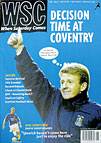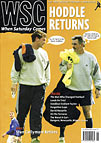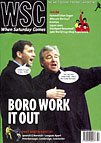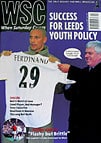 FIFA's favourite marketing company, ISL, is in trouble. Alan Tomlinson assesses the damage its demise may do to the world governing body and its leader.
FIFA's favourite marketing company, ISL, is in trouble. Alan Tomlinson assesses the damage its demise may do to the world governing body and its leader.
Jean Marie Weber is a tall, imposing man with a mane of white hair. At most big world and European football tournaments and a number of Olympic Games he’s been there, patrolling in the background, making sure the big sponsors are secure in the swankiest hotels of the world’s glitziest cities. He looked pleased in the Paris convention hall in 1998 when Sepp Blatter strolled to election victory to take the FIFA presidency.


